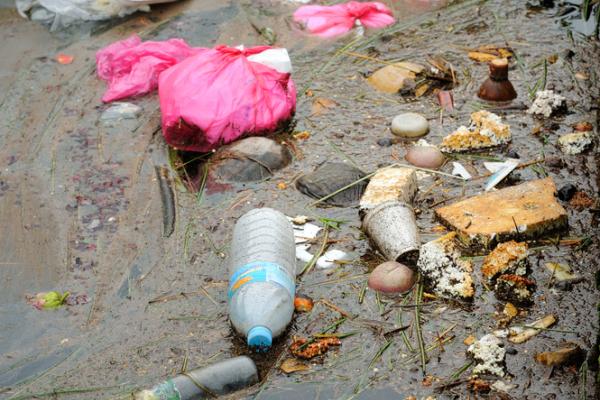In the Hebrew and Christian scriptures, there is a Psalm that proclaims: “the earth is the Lord’s and everything in it, the world, and all who live in it” (Psalm 24:1). There is no part of this world that God is not aware of, cannot lay claim to, and does not rule. Christians affirm that as people of faith we’re called to be stewards over creation, answering one day for how we’ve treated the earth.
And part of that stewardship means understanding how this world works and what it needs in order to thrive. Unfortunately the din of our political ideologies has too often drowned out the biblical calling to care for creation.
In Texas, the State Board of Education will recommend new textbooks for all its students—and because it has such a large population, what they decide could determine what students in other states learn about science. There are several ideologues submitting textbook critiques to the board and their reviews will factor into each book’s overall score and likelihood of being approved by the school board. These ideologues could block the use of textbooks that teach the reality of climate change for the whole country’s public school students.
Climate science is being attacked by deniers who want to sow seeds of doubt as we try to educate our children about how our way of life – including our fossil fuel habit – is affecting God’s earth through climate change. Children, the ones who will most be affected by climate change, are the ones who most need to how to combat it.
The political ideology against creation care extends even to the federal government. Right now the EPA is conducting listening sessions around the country as they write new rules for carbon emissions from existing coal and natural gas-fired plants. This is a common sense approach that we should support. But despite their efforts, members of Congress have threatened to hamstring the EPA as it tries to do its job in protecting human health from carbon pollution.
Critics of climate change in particular and science in general often quote the Bible to back up their claims. But the reality is that climate change is a theological problem. We were meant to maintain — not exploit at all costs — the goodness of this world. For decades, we have witnessed a great ravaging of God’s creation. In Romans, the Apostle Paul describes creation as in “bondage to decay.” This is not just spiritual decay, but physical decay. Just as God intends to fully redeem humanity, so also creation will be redeemed and made new. This earth belongs to God and so it must matter to us.
Our respect for God must also mean that we obey the command to love our neighbors. It’s a sad fact that in America, we have not loved our neighbors through our unchecked consumption of fossil fuels. But the people who have contributed least will be the ones who are affected most — the poor and the vulnerable, who don’t have the resources to adapt as quickly to a changing climate. Part of loving our neighbors is seeking the common good. And when it comes to climate change, we need leaders who will show us the way.
One such leader is Katharine Hayhoe, a climate scientist and professor at Texas Tech University. Hayhoe is also an evangelical and married to a pastor. She has been a leading voice in both the scientific community and the church, calling for action on climate change. For Hayhoe, action comes not from guilt over past behavior, but out of love for God and God’s people. Hayhoe writes in her book, A Climate for Change, “Using our God-given wisdom to comprehend the climate change issue and making decisions that we believe will help the poor and disadvantaged certainly fall within the attitude of Christ in us, Christ through us, and Christ toward others. And we believe that making these choices is a loving thing to do.”
And many evangelicals — particularly young adults — would agree. In a recently commissioned survey by Sojourners, we found that 60 percent of evangelicals acknowledge the reality of climate change. Climate deniers are a minority, not the majority that they often claim to be.
It is a lie that we can continue to live as we have, that our reliance on fossil fuels and our endless economic growth at the expense of our planet is stable and sustainable. Not only does science tell us that, but God’s word calls us to account for how we’ve treated creation. Years after the Psalmist proclaimed God’s sovereignty over creation, the prophet Isaiah cried, “The earth lies polluted under its inhabitants; for they have transgressed laws, violated the statutes, broken the everlasting covenant. Therefore a curse devours the earth, and its inhabitants suffer for their guilt” (Isaiah 24:5-6). Part of good stewardship will come through conversion—making individual choices to care for creation. But that stewardship also includes ensuring just public policies that protect the earth. How or where do we begin? One way you can help is by signing on to a petition to keep climate science in Texas textbooks. The earth is the Lord’s and everything in it, the world, and all who live in it. We must let God convert our hearts to love this world and preserve it for those who have yet to live in it.
Got something to say about what you're reading? We value your feedback!
